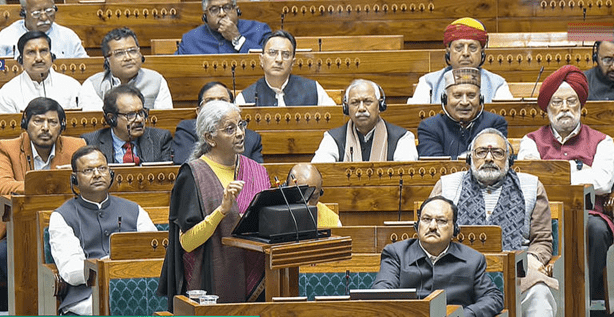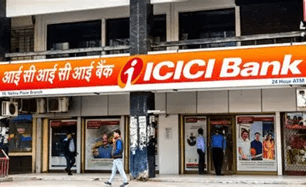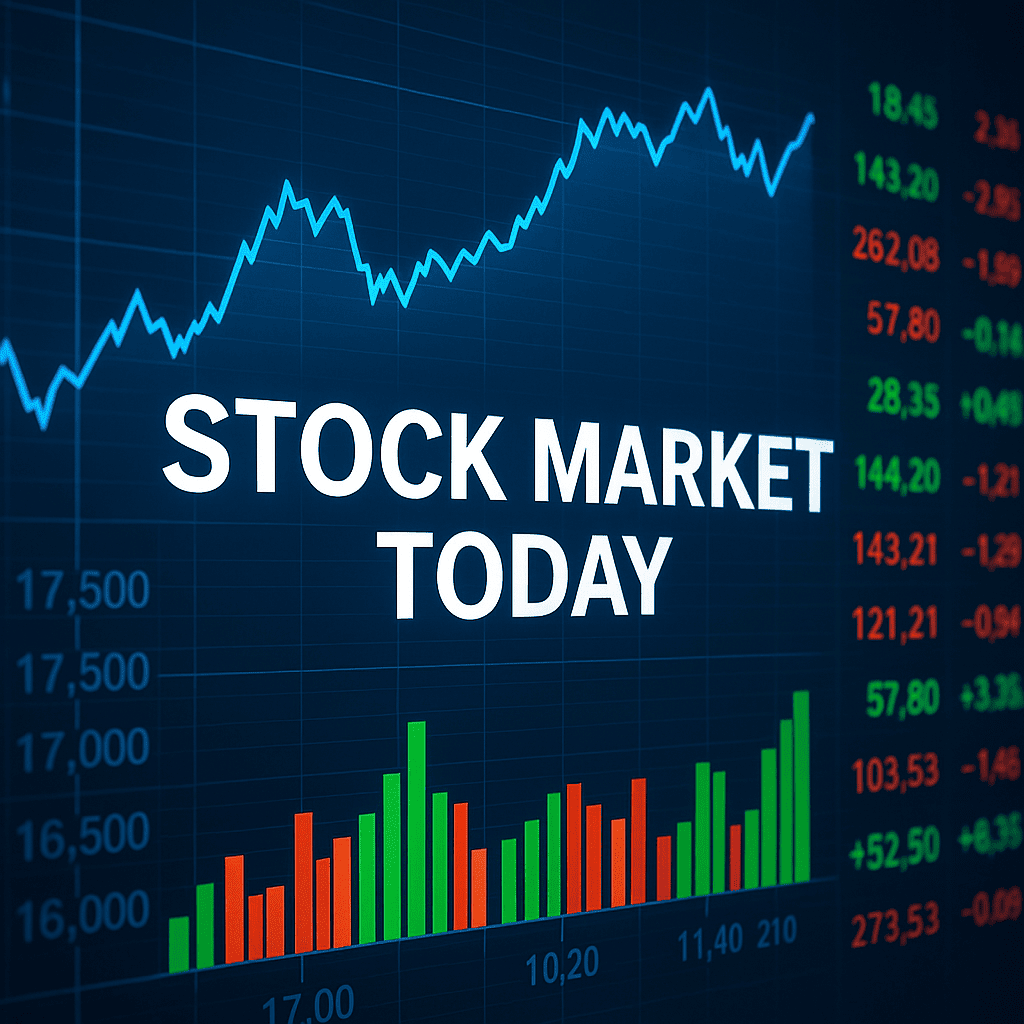1. The Beginning of the Stock Market
The concept of the stock market traces back to the early 17th century. In 1602, the Dutch East India Company became the first company to issue shares to the public through the Amsterdam Stock Exchange, making it the world’s first official stock exchange.
This concept revolutionized how companies raised capital. Instead of borrowing money, they offered ownership stakes to the public. Investors who bought these shares became partial owners and were entitled to a portion of the company’s profits.
Over time, this idea spread to other parts of the world. London and New York established their own exchanges. Eventually, the New York Stock Exchange (NYSE) became the most powerful exchange globally.
Key Principles of Stock Market:
- Ownership: Buying a stock means owning a piece of a company.
- Dividends & Gains: Shareholders may earn from price appreciation or dividends.
- Volatility: Prices fluctuate due to news, demand, supply, and company performance.
Today, global stock markets are digital, fast, and deeply connected to the world economy.
2. Evolution of the Indian Stock Market
India’s stock market began in 1875 with the Bombay Stock Exchange (BSE). It is Asia’s oldest exchange. Initially, trading happened under banyan trees in Mumbai. But in 1992, a modern, electronic exchange named the National Stock Exchange (NSE) was established.
This was a game-changer. Along with the formation of SEBI (Securities and Exchange Board of India) as a regulator, it ensured fair trading practices and investor protection.
Major Milestones:
- 1990s: Economic liberalization boosted foreign investments.
- 2000s: Internet brought online trading to the masses.
- 2020: COVID-19 triggered a crash and a record rebound.
- 2021–2023: Retail investors flooded the markets with demat account growth.
Major Stock Indices in India:
- BSE Sensex: Top 30 companies across sectors.
- NSE Nifty 50: Top 50 companies listed on the NSE.
India’s stock market is now the fifth-largest in the world by market capitalization.
3. Rise of Cryptocurrency – The Digital Gold
In 2009, a mysterious figure named Satoshi Nakamoto introduced Bitcoin – a decentralized, peer-to-peer currency with no central authority. This was the birth of cryptocurrency.
Unlike traditional stocks or currencies, cryptocurrencies rely on blockchain technology, which is a secure and transparent digital ledger.
Key Features of Cryptocurrency:
- Decentralization: No central bank or institution controls it.
- Limited Supply: Most cryptos have a capped supply (e.g., Bitcoin – 21 million coins).
- Volatility: Prices are extremely volatile due to speculation and demand.
Popular Cryptocurrencies:
- Bitcoin (BTC) – The first and most valuable.
- Ethereum (ETH) – Supports smart contracts and decentralized apps.
- Binance Coin (BNB), Solana (SOL), Ripple (XRP) – Gaining traction in recent years.
India has seen a surge in crypto investors, especially young tech-savvy individuals. Despite regulatory uncertainties, platforms like CoinDCX, WazirX, and CoinSwitch have added millions of users.
However, governments around the world, including India, are still debating how to regulate this market.
4. Role of Company News in Market Movement
Company news plays a crucial role in the stock market. Whether it’s financial earnings, mergers, CEO changes, product launches, or legal issues – every piece of news impacts stock prices.
Types of Company News That Impact Stocks:
- Quarterly Earnings Reports: If a company exceeds market expectations, its share price often rises.
- Mergers & Acquisitions (M&A): Can boost the acquiring company or benefit shareholders.
- Leadership Changes: A well-regarded new CEO can increase investor confidence.
- Legal or Regulatory Issues: Lawsuits or fines can pull the stock down.
- Product Announcements: New innovations or failures can sway market sentiment.
Investors and traders keep a close eye on:
- Company press releases
- SEBI filings
- Media coverage and analyst recommendations
A single piece of news can result in millions of dollars being added or wiped off a company’s valuation.
5. Recent Share Market & Crypto
Updates
Stock Market Updates (India – Mid 2025):
- Nifty 50 has crossed the 24,000 mark for the first time.
- Sensex has been hovering around 80,000 due to strong quarterly earnings.
- IT and Pharma sectors are leading the rally.
- IPO boom: Over 30 companies have filed for IPO in the first half of 2025.
- Retail participation is at an all-time high, with over 13 crore demat accounts.
Global Markets:
- US stock market showing resilience despite inflation concerns.
- European stocks remain stable but sensitive to interest rate movements.
Crypto Market Updates:
- Bitcoin crossed $80,000 for the first time in June 2025.
- Ethereum is gaining ground with ETH 2.0 upgrades.
- India is yet to legalize crypto fully but has introduced a CBDC (Central Bank Digital Currency) under RBI supervision.
Governments are exploring regulatory sandboxes and tax frameworks for crypto assets, making them more secure for retail investors.
6. Role of Retail Investors & Financial Literacy
The rise of retail investors (individuals like you and me) has transformed the financial markets. Previously, large institutions and foreign investors dominated the market. But now, platforms like Zerodha, Groww, Upstox, and others have made investing easy.
Key Drivers:
- Mobile apps and internet access
- SIPs in mutual funds
- Social media awareness
- YouTube & Instagram finance influencers
Retail investors now contribute:
- Over 45% of daily trades on NSE
- Significant portion of mutual fund investments
This has democratized wealth creation. Even small investors can now participate in IPOs, ETFs, equity trading, and crypto.
Financial literacy programs are crucial. Knowing how to read financial reports, understand risks, and set long-term goals is vital for wealth building.
7. Future Outlook – What Lies Ahead?
The future of the financial world is a mix of technology, transparency, and decentralization.
Trends to Watch:
- AI & Machine Learning in stock trading
- Blockchain for secure transactions
- Digital IPOs and real-time settlement
- ESG investing (Environment, Social, Governance)
- Rise of Gen Z Investors who prefer sustainable companies
For India:
- Strong economic growth expected
- Startup ecosystem fueling IPO market
- Government push for financial inclusion and digital economy
For Crypto:
- Regulation will define future adoption
- Countries experimenting with crypto-friendly laws
- More institutional adoption on the way
Key Features of Cryptocurrency:
- Decentralized:
No single institution (like RBI or a bank) controls it. It runs on a distributed network of computers. - Blockchain Technology:
All crypto transactions are recorded on a public ledger called a blockchain, which is secure and transparent. - Encrypted Transactions:
Advanced cryptography makes it nearly impossible to hack or alter transaction data. - Global and Digital:
You can send or receive crypto across the world instantly using the internet. - Ownership Control:
Users hold their crypto in digital wallets, and only the wallet holder can access the funds.
💸 Popular Cryptocurrencies:
| Name | Symbol | Purpose |
|---|---|---|
| Bitcoin | BTC | Digital gold, store of value |
| Ethereum | ETH | Smart contracts & decentralized apps |
| Tether | USDT | Stablecoin (pegged to USD) |
| Ripple | XRP | Cross-border payments |
| Solana | SOL | Fast blockchain for apps and NFTs |
⚠️ Risks Involved:
- Highly volatile (prices can change quickly)
- Regulatory uncertainty (many countries are still figuring out how to govern crypto)
- Vulnerable to scams or hacking if not stored securely
✅ Why People Invest in Crypto:
- Potential for high returns
- Diversification of investment portfolio
- Belief in decentralized finance (DeFi) and blockchain innovation
1. Digital Payments & Money Transfers
Cryptocurrency is used to:
- Send money across borders quickly and with lower fees (compared to banks or services like Western Union)
- Pay for goods and services (some websites and stores accept Bitcoin or Ethereum)
Example:
A freelancer in India can receive payment from a client in the US in Bitcoin, avoiding high transaction fees and delays.
✅ 2. Decentralized Finance (DeFi)
Crypto is essential in DeFi platforms, which offer:
- Loans
- Savings
- Insurance
- Currency exchange
…without traditional banks.
Example:
Using Ethereum-based apps like Aave or Compound, you can lend or borrow funds using crypto as collateral.
✅ 3. NFTs and Gaming
Cryptos like Ethereum, Solana, and Polygon are required for:
- Buying and selling NFTs (Non-Fungible Tokens)
- Making in-game purchases in blockchain games
Example:
To buy art on OpenSea or play games like Axie Infinity, you need ETH or SLP tokens.
✅ 4. Smart Contracts & DApps
Crypto is used to fuel smart contracts (self-executing agreements) on platforms like Ethereum, which power decentralized apps (DApps).
Example:
If you rent a digital product or subscribe to a blockchain-based service, smart contracts may auto-pay in crypto.
✅ 5. Crypto Exchanges and Trading
To buy or sell other cryptocurrencies, you first need a crypto (like USDT, BTC, or ETH) to trade on crypto exchanges such as:
- Binance
- CoinDCX (India)
- Coinbase
- WazirX (India)
✅ 6. Investment & Wealth Building
Many investors use crypto as a store of value or speculative investment — like buying stocks or gold.
✅ 7. Central Bank Digital Currencies (CBDCs) (Future use)
Countries like India (with e₹ or Digital Rupee) are launching official government-backed cryptocurrencies for:
- Transparent payments
- Digital banking in remote areas
If you’re asking where you must use crypto, currently it’s optional in most places, but it is required:
- On crypto platforms
- In NFT marketplaces
- In DeFi ecosystems
- In some online businesses that only accept crypto
1. How is crypto required for transactions?
Crypto is required when:
| Use Case | Crypto Required |
|---|---|
| Buying NFTs | Usually ETH, SOL, or MATIC |
| Using DeFi services | ETH, BNB, MATIC, etc. |
| Trading on crypto exchanges | BTC, ETH, USDT, etc. |
| Paying in crypto-accepting stores | BTC, DOGE, or stablecoins |
| Playing blockchain-based games | Game-specific tokens |
To use these services, you must own the required cryptocurrency in a crypto wallet.
🔧 2. How is crypto used (technically required) in systems?
In systems like blockchains and DApps, crypto is needed to:
- Pay transaction (gas) fees:
On Ethereum, you need ETH to pay for actions like transferring tokens or using a smart contract. - Validate transactions:
In networks like Bitcoin, miners or validators earn crypto by processing transactions (called “Proof of Work” or “Proof of Stake”). - Incentivize participation:
Platforms give tokens (crypto rewards) to encourage people to use or support the system.
📜 3. How is crypto required legally or economically?
✅ Required (In Practice):
- Cross-border remittance in countries with high banking fees or limited access.
- Stablecoins like USDT or USDC are required in crypto trading pairs.
- Smart contracts and Web3 apps require crypto tokens to function.
❌ Not Yet Legally Required:
- You do not need crypto to live or shop in most countries.
- Crypto is not legal tender (except in a few countries like El Salvador where Bitcoin is official currency).
📦 Example:
If you want to buy an NFT on OpenSea:
- You must have ETH in a digital wallet like MetaMask.
- You connect the wallet to the platform.
- You pay using ETH. No credit card or INR is accepted directly.
Case Study: Infosys Limited (INFY)
Sector: Information Technology (IT)
Listed On: NSE & BSE
Founded: 1981
Headquarters: Bengaluru, India
🔍 1. Company Background
Infosys is a global leader in IT consulting, software development, and business outsourcing services. It was founded by Narayana Murthy and a group of engineers with just ₹10,000 in capital. Today, it is among the largest IT services companies in India with a market capitalization of over ₹6 trillion (as of 2025).
📈 2. Stock Market Performance (2000–2025)
| Year | Major Events | Stock Price Impact |
|---|---|---|
| 2000 | Dot-com bubble | High volatility |
| 2008 | Global financial crisis | Major dip in stock |
| 2013 | Leadership changes | Mixed investor reaction |
| 2020 | COVID-19 pandemic | Brief fall, strong recovery |
| 2022–2025 | Global IT demand + AI investment | Stock hit new highs |
Example:
In April 2020, during the COVID-19 lockdown, Infosys stock dropped by over 25%. But by mid-2021, it recovered and reached new all-time highs as the demand for digital transformation surged globally.
📊 3. Financial Snapshot (FY 2023–24)
| Metric | Value |
|---|---|
| Revenue | ₹1,56,000 crore |
| Net Profit | ₹26,000 crore |
| EPS (Earnings/share) | ₹61.80 |
| P/E Ratio | ~23x |
| Dividend Yield | 2.0% |
📰 4. Company News & Impact on Stock
📌 Positive News Events:
- Large Client Wins: New contracts with major US or European firms boost stock.
- Quarterly Earnings Beat: Better-than-expected profit reports result in a price jump.
- AI & Cloud Expansion: Announcements related to emerging tech draw positive investor interest.
📌 Negative News Events:
- CEO Resignation (2017): Stock dipped after Vishal Sikka resigned.
- Whistleblower Allegations (2019): Stock fell 15% after an internal report claimed financial irregularities.
🧠 5. Key Lessons for Investors
- Track Company News: Earnings, leadership changes, and global demand directly impact stock prices.
- Long-term Growth: Despite short-term dips, Infosys has delivered strong long-term returns.
- Sector Sensitivity: IT sector stocks are affected by global economy, currency rates, and demand in the US/Europe.
- Strong Fundamentals Matter: High revenue growth, consistent profits, and ethical management lead to investor trust.
💹 6. Stock Return Analysis
If you had invested ₹1 lakh in Infosys in:
- 2010, it would be worth ~₹5–6 lakh by 2025 (5–6x return)
- 2020 (COVID dip), it would have more than doubled by 2025
🧾 7. Investment Style Fit
Infosys stock suits:
- Long-term investors
- Dividend-seekers
- Tech-focused portfolios
- Moderate-risk investors looking for blue-chip exposure
📌 Most Traded by Value (NSE – as of 10:51 AM IST)
These stocks led the market in total traded value, reflecting strong investor activity:
- TCS (₹1,232 Cr)
- Infosys (₹986 Cr)
- Hindustan Unilever (HUL) (₹876 Cr)
- JP Power, Crizac Ltd., Mamata Machinery Ltd., BSE Ltd., Enviro Infra, Tata Elxsi, Mankind Pharma Capital Market+1Capital Market+1Dhan+3INDmoney+3The Economic Times+3The Economic Times+1The Economic Times+1
⚡ Most Traded by Volume (NSE – as of 10:14 AM IST)
Stocks with the highest trading volumes today include:
- JP Power (≈2.61 Cr shares)
- Shangar Decor, RattanIndia Power, GTL Infra, IFL Enterprises, Vodafone Idea, PC Jeweller, Avance Tech, Sunshine Capital, Stampede Capital Dhan+3ET Money+3INDmoney+3The Economic Times+1The Economic Times+1
On July 10, JP Power also led in volume with over 34.46 cr shares, followed by RattanIndia Power, Vodafone Idea, PC Jeweller, Sagility India, among others — showcasing continued heavy trading interest The Economic Times.
🔍 Stocks in Focus Due to News & Updates
Key companies drawing attention based on announcements or Q1 results:
- DMart, IREDA, TCS, ZEE, HUL, Glenmark Pharma appear in market news and analyst screens The Economic Times+4Screener+4The Economic Times+4Screener+6AdRock.in+6The Economic Times+6
- Stocks hitting new 52-week highs today: Glenmark Pharma, Fischer Chemic, TN Telecom, Sumeet Industries, JP Power The Economic Times
🧐 Noteworthy Recommendations
- Analyst picks for July 11 include: Equitas Small Finance Bank, Medi Assist Healthcare Services, among others AdRock.in+10Capital Market+10The Times of India+10
- Earlier expert bull calls also include Capri Global, Sagility India The Economic Times+2ET Money+2Navbharat Times+2
📊 Broader Trending Stocks Universe
For a broader list of trending stocks beyond the top active names:
- CapitalMarket data shows highly liquid names like HDFC Bank, ICICI Bank, State Bank, Reliance, Tata Motors, Infosys, Kotak Bank, and Titan Navbharat Times+15Capital Market+15Screener+15
- Infometrics identifies mega-cap favorites: Reliance, TCS, HDFC Bank, Adani Green, Bharti Airtel, Infosys, Zomato Infometrics
- Platforms like Infometrics and Screener list over 30 trending mid‑caps like Marico, Poonawalla Fincorp, Divi’s Labs, Glenmark Pharma, L&T Finance, and more AdRock.in
🧭 Overview Table
| Category | Top Stocks |
|---|---|
| By Traded Value | TCS, Infosys, HUL, JP Power, Tata Elxsi |
| By Trading Volume | JP Power, Vodafone Idea, Sagility India |
| Recent News Focus | TCS, HUL, Glenmark, DMart, ZEE |
| Analyst Recommendations | Equitas, Medi Assist, Capri Global, Sagility |
| Trending Mega‑caps | Reliance, TCS, Airtel, HDFC Bank, Zomato |















